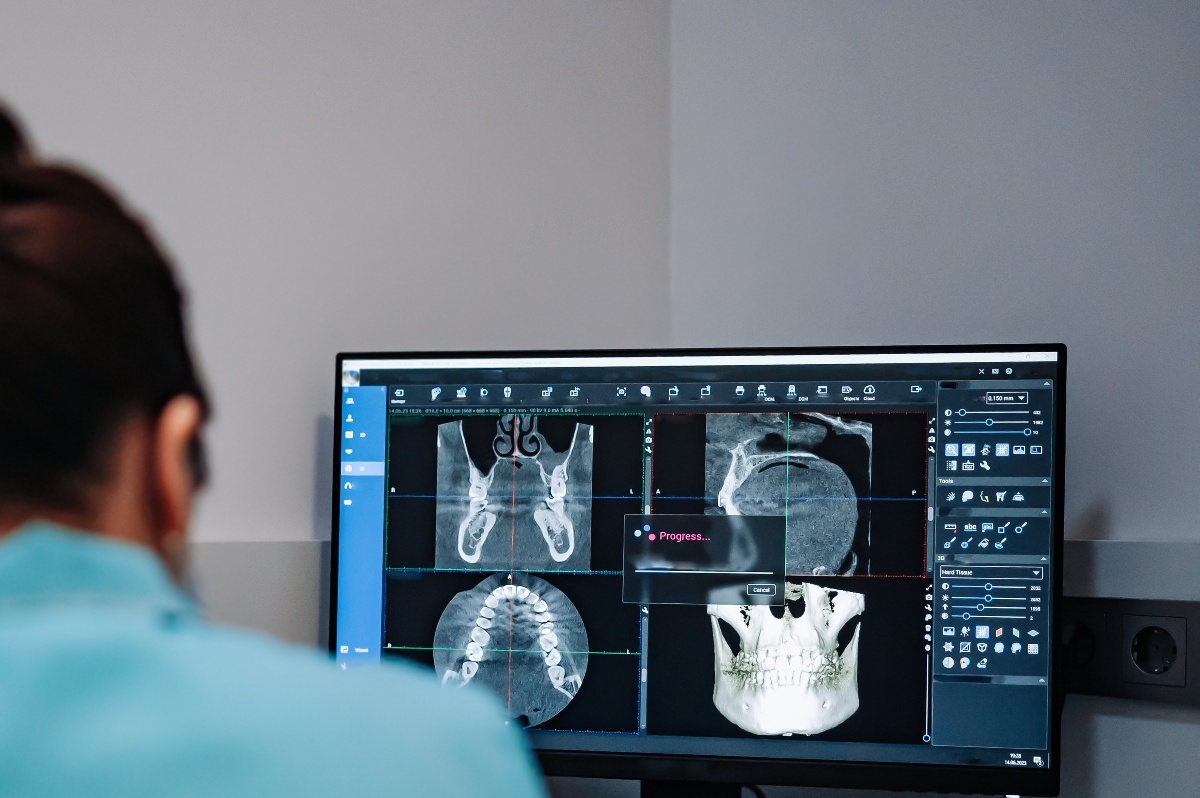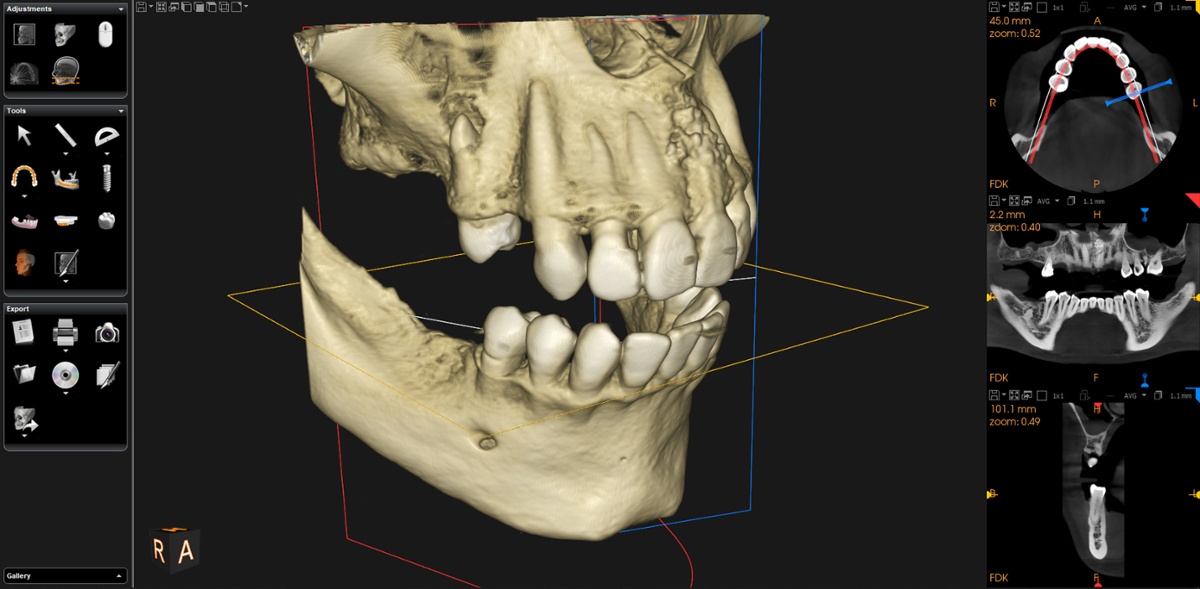You have likely seen media reports that traditional antibiotics are less effective in treating infections. This causes concern for all healthcare providers, including dentists, since a contributing factor to this problem is the overprescribing of antibiotics.
However, if you have a toothache, you want immediate relief, and many people believe this requires an antibiotic. But do antibiotics help relieve tooth pain?
Six Causes of Tooth Pain
Tooth pain can progress gradually from slight sensitivity to a throbbing toothache. You can also experience severe pain suddenly, without warning. There are several possible causes of tooth pain, such as:
- Tooth decay. A small cavity can cause mild symptoms, such as sensitivity when you drink something cold. A large cavity, however, can result in severe pain that interrupts your daily routine. The reason tooth decay causes tooth pain is that there is inflammation of the dental pulp caused by bacteria.
- Gum disease. Inflamed or infected gums can cause sensitive or painful teeth. Many times the symptoms are most noticeable when chewing.
- Injury. Dental trauma is very common and typically requires evaluation by a dentist. This is especially true when a tooth is broken or dislocated. While these types of injuries can cause significant tooth pain, minor injuries can result in symptoms that occur when biting hard foods.
- Wisdom teeth. Your third molars, known as wisdom teeth, can cause pain as they erupt through the gums. Some wisdom teeth also get cavities due to the difficulty in keeping them clean.
- Grinding and clenching. Grinding or clenching your teeth places enormous stress on your teeth and the ligament that holds them in their sockets. This often results in painful teeth and jaws that need treatment to prevent developing more serious problems.
- Abscessed tooth. An abscessed tooth occurs when the dental pulp becomes infected. When this infection spreads outside the tooth, you can experience swelling in the gums or jaw. The treatment for an abscessed tooth is root canal therapy.
What Are Antibiotics?
Antibiotics are the classification of drugs used to treat bacterial infections. Bacteria are microscopic, single-celled organisms found almost everywhere on earth. Most bacteria that reside inside and on people help keep our bodies healthy and in balance. Some are harmful, however, such as the streptococcus forms that cause strep throat, pneumonia, and tooth decay.
Antibiotics can only treat specific bacterial infections. They do this by killing the germs or preventing their growth and multiplication. Although antibiotics can be very effective and sometimes lifesaving, they are not without side effects. The common side effects that cause mild health problems include:
- Nausea and vomiting.
- Yeast infections.
- Rash.
- Diarrhea.
- Loss of appetite.
- Abdominal pain.
- Lethargy.
Other side effects are more serious, such as:
- Anaphylaxis or a life-threatening allergic reaction.
- Severe diarrhea, known as C. diff.
- Antibiotic-resistant infections.
The Problem of Antibiotic Resistance
We tend to view an antibiotic prescription as the solution to our problem. However, the reality is that each prescription makes its own small contribution to what the World Health Organization (WHO) calls “the biggest threat to global health.”
The problem referred to by the WHO is antibiotic resistance. Even when an antibiotic effectively eliminates an infection, the bacteria that caused the problem changes slightly in response to the medicine. After an adequate number of these slight changes, that strain of bacteria is no longer susceptible to that particular antibiotic. The challenge for health care providers is deciding when an antibiotic will be effective for a patient.
Do Antibiotics Help Relieve Tooth Pain?
Dental pain has been shown to diminish a person’s quality of life and hinder their ability to carry on normal daily activities. Therefore, dentists face the task of relieving their patient’s toothache as quickly as possible while only prescribing medically necessary medications. This dilemma is faced with the realization that patients frequently ask, “Why won’t my dentist give me antibiotics?”
When a dentist is confident that antibiotics are unnecessary, it can be challenging to practice antibiotic stewardship. Yet dentists know that it is in the patient’s long-term best interest if they do not contribute to antibiotic resistance. Having a particular antibiotic remain effective in the future could be very important.
But in some cases, antibiotics can help alleviate dental pain. The answers to several questions determine the appropriateness of taking an antibiotic.
- What is the cause of pain? Tooth pain typically is due to inflammation or infection. Antibiotics are ineffective when the cause of the pain is inflammation. However, the presence of infection does not always necessitate the use of antibiotics.
- If an infection is present, is it localized? An antibiotic is typically unnecessary when an infection is contained to the tooth and has not spread to the surrounding gums or jawbone.
- Will other treatments be sufficient if the infection involves the gums or soft tissues? Sometimes the infection spreads and causes swelling of the gums or other soft tissues. The infection might be successfully managed with treatments such as root canal therapy or draining the swollen gums.
- Has the infection caused systemic symptoms? When a tooth’s infection spreads to the surrounding tissues, it can cause a response that includes fever, malaise, dehydration, rapid heart rate, and swollen lymph nodes. When these symptoms develop, antibiotics will likely be prescribed.
- Does a medical condition exist that increases the risk of having an infection? Some medical conditions interfere with a person’s immune system and make healing from a local infection less likely. In these cases, it is preferable to err on the side of prescribing the antibiotic to avoid progression to a worse infection.
What If I Have Swelling?
Some minor toothaches resolve without treatment. You should contact your dentist, however, if your pain lasts more than a few days. Also, if you have swelling in your gums, jaw, or face, you should contact your dentist as soon as possible.
Swelling may be a sign that an infection has begun. Prompt treatment of swelling can often prevent more severe symptoms that require more extensive treatment. While it is true that you are much more likely to receive an antibiotic if you have a toothache accompanied by swelling, early treatment may make this unnecessary.
Schedule an Appointment
The dentists at Palmetto Dental Arts can help diagnose and effectively treat your tooth pain or other dental symptoms with state-of-the-art techniques and equipment. Contact us online or call us for a comprehensive oral examination.




